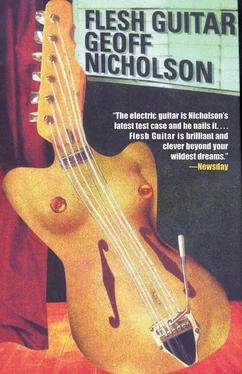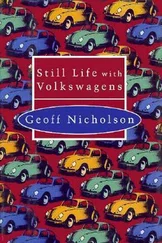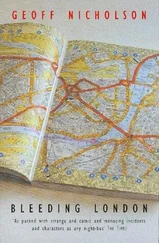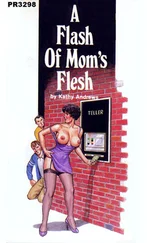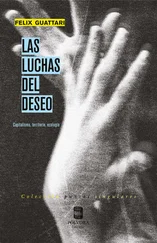But this final dream was different in several ways. In this one she didn’t even get as far as going on stage, and yet there was no frustration. She simply arrived at a strange hall in a strange town and outside was a poster advertising her presence. The poster said, ‘The Flesh Guitar of Jenny Slade’, and there was a crowd of thousands trying to get into the hall.
She liked the name. Even in the dream it seemed kind of absurd and funny, and she knew how important a catchy name is for entry-level rock musicians. Next day she set about forming a band, Jenny Slade and the Flesh Guitars; and sure enough she did eventually see her name on a poster, and even occasionally saw crowds of people going into a hall.
It was not in the strictest sense a prophetic dream. Yes, it did forecast what was to happen, but only because Jenny made it happen. But if she hadn’t had the dream perhaps it would never have happened at all.
Mostly her early fantasy life didn’t come so directly from the unconscious. Some of it was just playing around in front of a mirror, some of it was just rock and roll teen dreams. She imagined performing under the name of Juanita and Her Musical Snakes. She would come on stage with a Gibson Moderne and half a dozen boa constrictors of various ages, lengths and diameters. The more sedate of these would grip themselves around the guitar neck and hold down unresolved chord shapes, while the younger more slender critters would squirm across the strings creating wild atonal arpeggios. The liveliest snake, whom she nicknamed Fidel, would curl himself around the tremolo arm and create a profound and unworldly vibrato. The audience would love it. But even in the fantasy Jenny was aware that this was just a novelty act, and she wanted more than that.
Another fantasy: If a guitar is cranked up high enough, with the amp, and pickups and fuzz box all sex on maximum, even the slightest vibration, a knock on the body, the mere act of picking up the instrument will produce noise. In one of her earliest, most radical pieces Jenny’s playing consisted of no more than blowing on her guitar strings.
In the fantasy she imagines she is in an empty, desolate landscape, strapped into a kind of wheeled electric chair. The wheels fit on to railway tracks, and there is a powerful engine attached to the back of the chair. She is holding a guitar, and it is cranked up so that every breath of wind sets the strings roaring. A wireless transmitter sends signals from the pickups to a mountainous wall of amps and speakers set up some distance away.
When the moment comes, the engine will propel the chair along the railway track, and the rush of air will make the guitar whine; then, when the track runs out, like in some Roadrunner cartoon, she will be propelled into space, into a vast, deep canyon, still strapped to the chair, still clutching the guitar. And as she falls through the air the guitar screams and sings, and she knows that when she and guitar eventually hit the ground, the most wild, eloquent and destructive music will issue from the speakers.
And finally there is the fantasy of playing to a crowd of fierce, low-brow, blue-collar yobs; but the Havoc Bar and Grill is all too real, no fantasy at all.
Jenny’s guitar continues to fill the place. Her playing remains simple and unostentatious. She hardly seems to be doing anything, scarcely playing at all, and yet this strange, wonderful music continues to spill from the guitar. The music gets ever more complex and darker, gets louder and louder, and before long it seems to be the sound of planets melting, of death factories imploding, of mythical beasts being slaughtered, the sound of air moving and valves dying. It goes on and on, timelessly, constant, yet ever changing.
And as the crowd watches, increasingly spellbound, the guitar seems to develop a life of its own. It seems to be breathing, to be pulsing with its own heartbeat. And then the finale. Just when you can’t imagine how Jenny Slade can possibly embellish or prolong the music, and when you can’t see how she’s ever going to bring it to a conclusion, the guitar starts to bleed. Thick warm blood starts to ooze from the scar tissue of the pickups, trickles down the guitar’s body, makes dark, scattered blots on the stage.
It’s a hard act to follow. The audience is silent, but gives Jenny what she wants and needs; unqualified, undivided attention. And she takes certain energies away from them. But that’s OK, it’s not as if they were using those energies for anything much. As forms of vampirism go, this one is relatively benevolent. She brings the music to an end, a long diminuendo, a series of descending melancholy minor chords.
Jenny would always claim that guitar playing has something in common with chaos theory. A simple movement of her plectrum, a pluck of a string, a movement no greater or more dramatic than that of a butterfly’s wing, would create a signal which could sound as loud, as complex, as elaborate as the sounds that might accompany the end of the world.
The music starts to evaporate. Smoke and decay and a new silence hang in the air. The customers in the bar are not quite sure what they’ve heard or seen, but they’re suddenly in need, acutely aware that they’re dying for a drink. They huddle around the bar, and the barmaid has a hard time coping with their urgent demands for more booze.
Nobody applauds Jenny Slade. It wasn’t that kind of performance, but she’s well contented with the audience response. She sits down at a corner table and the manager sends over a beer. The crowd are in awe of her, deferential and too shy to approach her. Jenny slips her guitar into its case and snaps its lid shut with a bold, decisive gesture. Done it. It’s finished.
Nearby is a young kid, not more than seventeen years old, all Celtic tattoos, multiple piercings, blond hair and dirty denim, a tough cherub. He’s alone at a table full of empty beer bottles lined up like ten pins, but he appears sober. When Jenny looks towards him he turns his gaze aside, but he can’t ignore her when she says, ‘You’re a guitar player, aren’t you?’
‘That’s right,’ he admits. ‘How could you tell?’
‘The way you watched me play. The way you twitched your fingers.’
He grins shyly. ‘Yeah, I should stop playing air guitar, shouldn’t I?’
‘I’ve got something I want to give you,’ Jenny says.
He blushes, aware of the sexual innuendo, but he can’t respond, and his embarrassment turns to dumb amazement as Jenny Slade hands him her guitar.
‘It’s all yours,’ she says, and she drains her beer and heads for the exit.
‘Hey, hey,’ the boy says, and he gets up and pursues her out on to the street. All eyes from the bar turn and look out through the grey mottled windows to watch the dumbshow that now takes place; his mimed reluctance to accept the gift, Jenny Slade’s absolute refusal to take no for an answer. They watch as finally Jenny walks away and the boy doesn’t follow her. The guitar is his, though he has no idea what future comes with it. He is too stunned to return to the bar, and he too wanders off into the night, guitar in hand, but in the opposite direction from Jenny.
‘What was that all about?’ Kate the barmaid asks. ‘Of all the juke joints in all the world, why here? What did she want?’
None of the drinkers offers an answer; they’ve already got enough to think about. That was quite some cabaret turn they just witnessed. They finish their beers and slowly start to drift away. The manager talks of closing early, and Kate begins cleaning up the bar and stacking some of the chairs.
At which point the door of the bar is thrown open again. This time it’s a plump, uncool lad in a tangle of thick, ill-fitting clothes, laden down with several carrier bags, a briefcase, a rucksack. Greasy hair is tucked in behind his ears and his face shows the trouble he’s having breathing. He’s panting like a greyhound and the sweat pours down the sides of his nose, letting his horn-rims slip so that he peers over the top of them. He’s exactly the kind of nerd the bar’s clientele would normally have a lot of fun taking apart. He speaks only with great effort.
Читать дальше
